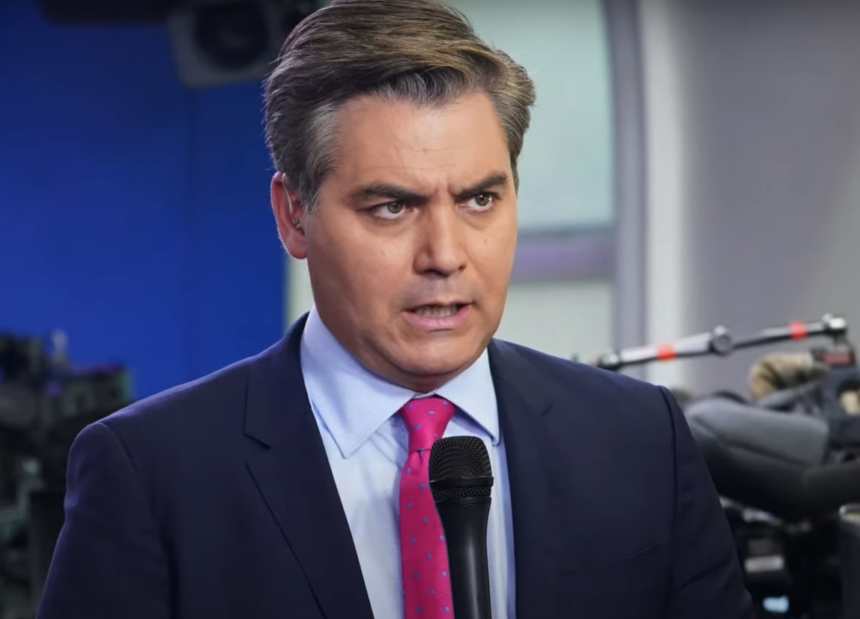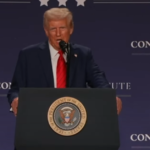Jim Acosta’s potential departure from CNN has sparked widespread speculation about what this means for the network and its coverage of political affairs, particularly regarding former President Donald Trump. Acosta has been one of CNN’s most recognizable figures, known for his aggressive questioning style and frequent clashes with Trump during press briefings. His confrontations with the former president turned him into a divisive figure, praised by liberals for holding power accountable while criticized by conservatives, who accused him of turning journalism into activism. If he is indeed leaving, it would mark a significant shift for CNN as it undergoes major changes under new leadership.
Jim Acosta joined CNN in 2007 and quickly rose through the ranks to become one of its most high-profile reporters. During Trump’s presidency, he served as CNN’s Chief White House Correspondent, where he became infamous for his heated exchanges with Trump and his press secretaries. His persistence in questioning the administration led to an unprecedented moment in 2018, when the White House revoked his press credentials, sparking a legal battle that CNN won. His aggressive reporting style made him a hero to many on the left, but also a frequent target of criticism from Trump and his supporters, who labeled CNN as biased and untrustworthy.
The news of Acosta possibly leaving CNN comes amid a broader restructuring at the network. Since the departure of former CNN President Jeff Zucker, the network has been shifting away from its more combative and partisan tone, a move led by new leadership under Chris Licht. CNN has let go of several prominent figures known for their strong political stances, including Brian Stelter, Don Lemon, and John Harwood, signaling a shift toward a more centrist approach to news coverage. If Acosta is part of this exodus, it could suggest that CNN is further distancing itself from the Trump-era style of political coverage that focused heavily on confrontation.
There are multiple theories about why Acosta may be leaving CNN. Some believe he could be a casualty of the network’s rebranding effort, as his openly critical stance toward Trump may no longer align with the network’s new direction. Others speculate that Acosta himself may be seeking new opportunities, potentially at a network like MSNBC, which could allow him more editorial freedom to continue his hard-hitting style of journalism. There is also the possibility that he could start his own independent media venture, following the path of other prominent journalists who have left major networks in favor of digital platforms.
Acosta’s potential exit raises important questions about CNN’s future. As the 2024 presidential election approaches, CNN’s coverage strategy will be crucial in shaping public perception of the candidates, including Trump, who remains a dominant figure in Republican politics. Without Acosta, CNN may take a less confrontational approach to covering Trump, which could impact how the network is perceived by both its viewers and political figures. While some may welcome a shift toward more neutral reporting, others worry that it may mean a reduction in holding powerful figures accountable, particularly in an era of misinformation and political polarization.
For Trump and his supporters, Acosta’s departure may be seen as a small victory. Trump frequently clashed with Acosta, often calling him a “rude, terrible person” and using him as an example of what he called “fake news”. If Acosta leaves, Trump could use it as evidence that CNN is correcting its course, which may energize his base. However, it remains to be seen whether CNN’s coverage of Trump will change significantly, or if another journalist will step into Acosta’s role to continue aggressively fact-checking and questioning the former president.
If Acosta does leave CNN, his future remains uncertain, but he has several potential career paths. He could transition to another major news network like MSNBC or ABC, where he may have more freedom to express his views. Alternatively, he could launch his own media platform, such as a podcast or YouTube channel, leveraging his strong following to reach audiences directly. Writing a book about his experiences covering Trump and the political landscape is another possibility, as many journalists have found success in publishing memoirs and political analysis.
Ultimately, Acosta’s potential departure from CNN is more than just a personnel change—it reflects broader shifts in the media industry. CNN is undergoing a transformation, attempting to balance credibility with broad audience appeal, and moving away from some of its more partisan personalities. This shift is a response to the growing competition in the media space, where audiences now have more options than ever before, including independent journalists and alternative media sources.
For the field of journalism, Acosta’s exit could symbolize the end of a particular style of political reporting that thrived during the Trump years. The confrontational, high-stakes press briefings that characterized much of Trump’s presidency may give way to a different style of reporting as networks attempt to adjust to changing viewer expectations. Whether this shift is beneficial or detrimental depends on one’s perspective—some may welcome a move toward more neutral journalism, while others may fear a decline in aggressive investigative reporting.
In the end, Jim Acosta’s possible exit from CNN will be closely watched by media analysts, political observers, and viewers alike. His next move could have significant implications for his career, CNN’s editorial direction, and even the broader media landscape. While his departure would mark the end of an era for CNN, it could also open new doors for him to continue his role as a prominent voice in political journalism, whether on television, digital platforms, or independent media.






